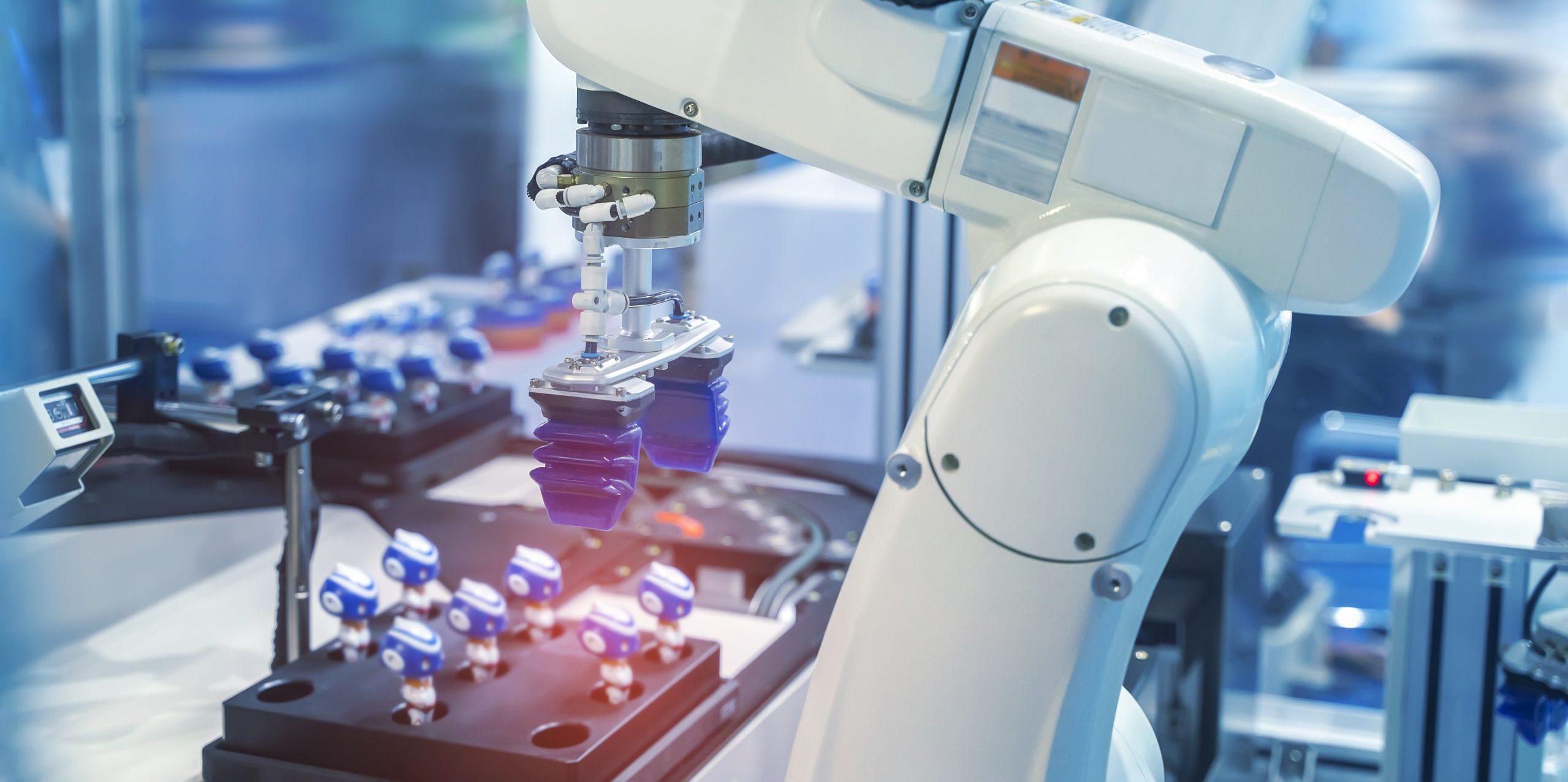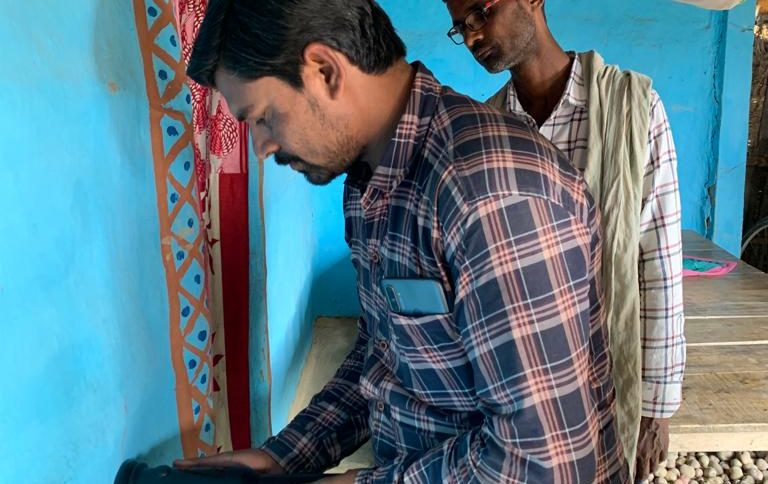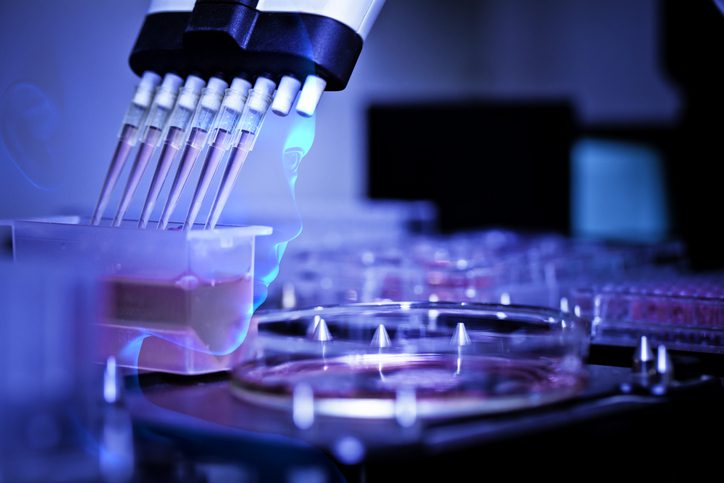- Find our latest Case Studies
- Our Platforms
Our Platforms
- Platform 1: Bioactives Library – Shaping novel antimicrobial products
- Platform 2: Hits to Leads – Developing new innovative antibiotics
- Platform 3: Organoid modelling – Enhancing drug discovery
- Platform 4: Advanced AMR Modelling
- Platform 5: Human Challenge – Small scale clinical trials
- Platform 6: Diagnostics
- Platform 7: Randomised Control Trials
- Platform 8: Mapping and Modelling
- Platform 9: Nanotherapeutics
- Platform 10: Antibody Humanisation
- Platform 11: Long-Acting Therapeutics
Leveraging technology to combat bio threats

Dr Mike Egan, Senior Business Development Manager, Infection Innovation Consortium: iiCON
A growing threat
With threats including future pandemics, antimicrobial resistance (AMR), and bioterrorism racing up the global risk register, the need to invest in innovation to develop new solutions has never been greater.
In a world increasingly vulnerable to biological threats, having the right infrastructure in place to safely research dangerous pathogens and proactively develop new treatments and diagnostics is critical.
The Government’s National Risk Register, which places pandemics and large-scale chemical, biological, radiological, and nuclear (CBRN) attacks in the highest category of risk to the UK, estimates a five to 25 per cent chance of another pandemic taking place in the next five years.
Analysis by Duke University in the United States similarly estimates the probability of experiencing a pandemic similar to COVID-19 in one’s lifetime currently at about 38 per cent.
AMR, which occurs when microorganisms develop the ability to resist the effects of drugs that previously killed or inhibited them, is another of the world’s fastest growing health crises. The World Health Organisation (WHO) projects that 10 million people could die every year from AMR by 2050 if no action is taken.
Unlocking the power of technology
As these risks rise – innovation is responding. The Liverpool City Region Combined Authority has announced funding for the Liverpool Robotic Infection Research Laboratory, a bespoke £20 million facility delivered by iiCON and located at Liverpool School of Tropical Medicine.
Designed to harness advanced robotics, AI-driven data analytics, and high-throughput screening systems in a secure, high-containment environment, the High Containment Level 3 labs are set to open in 2027.
This will accelerate the preclinical development of new therapeutics, vaccines, and diagnostics using organoid technology; reinforcing the UK’s global leadership in health innovation.
The labs, which are being delivered by a highly-expert team including HighRes Bio Solutions will be among the first in the UK to integrate robotics and AI-driven workflows into a lab capable of handling schedule five pathogens. Equipped with automated tools for liquid handling, incubation, and collaborative robotics, the facility will enable high-throughput organoid generation and precise manipulation of sensitive biological samples.
This will facilitate rapid and accurate testing of new anti-infectives, ensuring the safe and effective development of treatments for some of the world’s most dangerous pathogens.
Organoid technology, miniature, lab-grown tissue models that mimic human organ functions, holds significant promise for reducing vaccine development timelines by providing more predictive preclinical models for human responses.
Earlier this year, FDA Commisioner, Martin A. Makary, M.D., M.P.H highlighted the benefits that could be gained from leveraging AI-based computational modeling, human organ model-based lab testing, and real-world human data, to get safer treatments to patients faster and more reliably, while also reducing R&D costs and drug prices, calling it a ‘win-win’ for public health and ethics.
By automating complex processes and analysing large-scale datasets, the integration of robotics and AI can transform every stage of the R&D pipeline, from compound screening to preclinical validation. This fusion of technologies will not only accelerate research but also provide the infrastructure necessary for the safe deployment of AI technologies in health science.
This investment highlights the region’s commitment to advancing health science and ensuring the Liverpool City Region remains at the forefront of global health innovation, driving both regional prosperity and impact.
Supercharging innovation through partnership
Recent global health crises, most notably COVID-19, have offered many lessons to the life science sector, but critically they have showcased the power of collaboration and partnership to supercharge ingenuity and innovation.
Co-innovation is a central tenet of iiCON’s operating model. Led by Liverpool School of Tropical Medicine, the consortium unites academic institutions including LSTM and the University of Liverpool with industry leaders like Unilever and Life Arc, SMEs such as Evotec and Infex Therapeutics, and NHS partners including the Liverpool University Hospitals Foundation Trust.
We have drawn on this commitment to collaborative partnership-led innovation as we design and develop the new facility – leveraging the expertise and capability of iiCON partners across academia, industry, and the NHS to bring together world-leading multi-sector expertise.
Crucially, we are taking a co-development approach to AI/ML tool creation—working closely with industry and academic collaborators to ensure these tools are designed to address real-world challenges in anti-infective development.
This includes the use of high-throughput automated platforms to process thousands of compounds rapidly, with AI algorithms then deployed to analyse biological responses, identify promising leads, and predict efficacy and resistance profiles.
Through active collaboration with organisations operating Containment Level 2 robotic laboratories and commercial AI platforms, we are also building a robust knowledge base. This will underpin the successful deployment of AI in the new facility
By leveraging shared global knowledge, we are creating a blueprint for best practice. This will support broader implementation and uptake of these advanced technologies to protect against growing bio threats and drive forward new solutions to the most pressing global health challenges.


